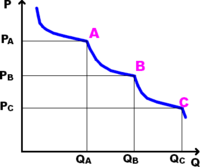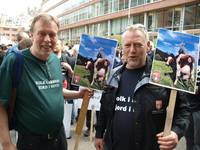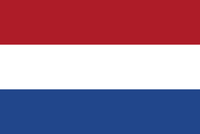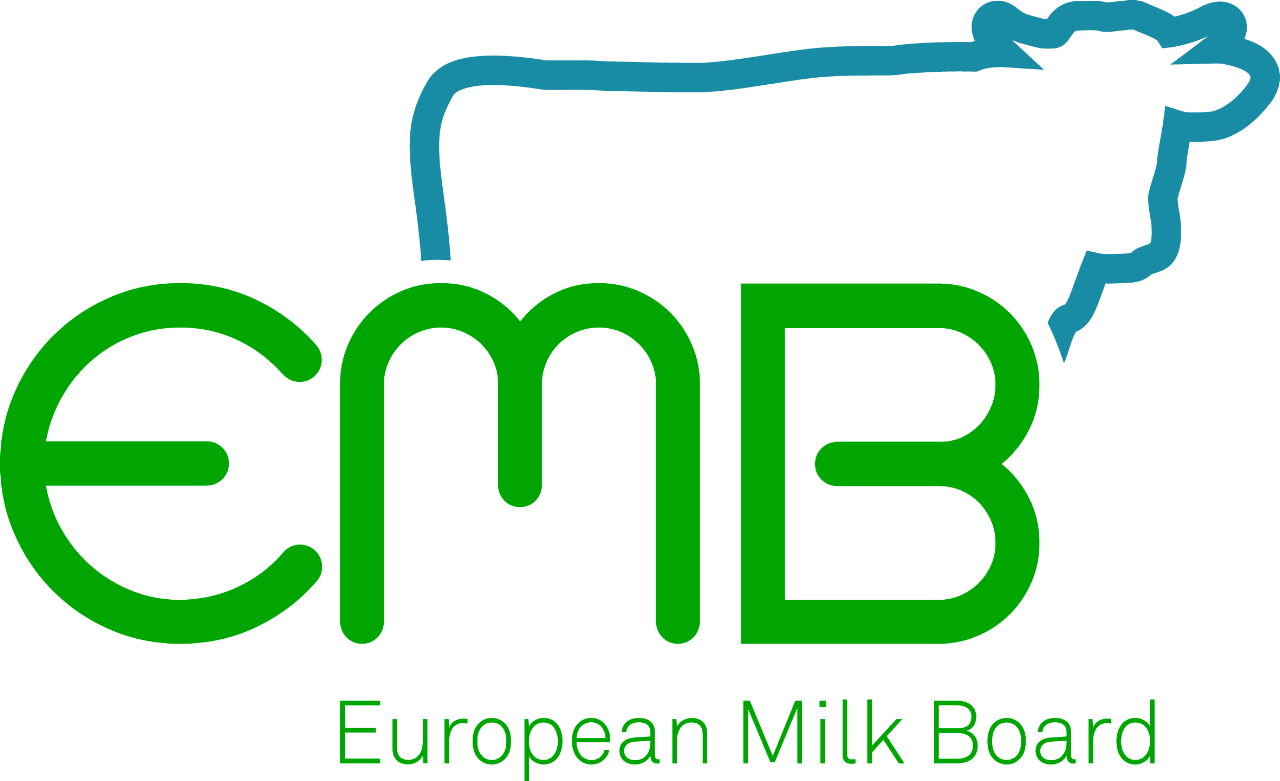EMB Newsletter April 2013
Newsletter as PDF
Contact
European Milk Board
Bahnhofstr. 31
D-59065 Hamm
Phone: 0049/2381/4360495
Fax: 0049/2381/4361153
E-Mail: office@europeanmilkboard.org
Website: http://www.europeanmilkboard.org
Newsletter as PDF
Contact
EMB - European Milk Board asbl
Rue de la Loi 155
B-1040 Bruxelles
Phone: +32 - 2808 - 1935
Fax: +32 - 2808 - 8265
Dear Dairy Farmers and Interested Parties,
The social and political context in which we live today confirms that the foundation of the European Milk Board (EMB) as an organization for milk producers and their interests was the only true response possible.
In this climate of economic war, where 25% of European milk producers risk failure, where production costs have reached very high levels exposing producers to difficult economic conditions, where the milk price is lower than the price in 1980, what fate would producers suffer without the EMB?
What the EMB is able to achieve became evident last November in Brussels in the most important demonstration which that city, the capital of political Europe, has ever seen. Milk producers demonstrated for two days outside the European Parliament with the support of 1,000 tractors, and poured out several tons of milk on the Parliament’s buildings. Because of this unique historical event and the milk strike in 2008, the demands of the EMB are now heard in Brussels.
In milk production, the EMB intends to initiate a cultural revolution that will completely change the producers’ way of thinking. For the last 50 years we reasoned exclusively about the idea of increasing production, without thinking about the importance of the milk price and income. The great challenge we now face is to make producers aware that production as such does not ensure the development of farms. The price of production is far more important, without the right price there is no dignity in life. In fact, for the future we intend to shape a new cultural belief: “First price, then production”
This cultural revolution has already started, as witnessed by the “A fair milk” project. Through this project, the EMB promotes new commercial ideas for a fair relationship between producers and consumers in the food chain. The aim of the project is to achieve a fair milk price for both producers and consumers, where buying “fair milk” products can support the economy of their country.
We are all called upon to sustain and develop the EMB and we need the aid of each and every one of you. Only together can we change and improve our future. What the EMB represents for us is certainty, a real possibility to realize a dream. The dream is to lead milk producers and farmers into a better world, where they can live in happiness, instead of just survive with a lot of trouble, in a limbo every day between life and death, as is now the case.
Roberto Cavaliere (Member of the EMB Board)
What are the dairies’ plans for after 2015?
The abolition of quotas is a decisive event in many respects. Firstly, it means the milk producers will lose their access to the market ensured by the quota system (“guaranteed volume regulation” in Germany). Secondly, there is the risk of ever reoccurring overproduction. However, the abolition of the volume limit must also be seen in the context of global market liberalisation.
What are interesting are the dairies’ statements in reply to the question of how they as processors intend to react to the change in the situation, especially since in future the dairies will de facto be the milk producers’ only access to the market.
Members’ Assembly: the EMB re-constitutes itself and votes for demonstrations in Germany
The half-yearly meeting of the EMB members was held in Brussels on 25 and 26 March. It placed the focus of the political work to be done in the next few months on campaigns of action in the member states. It also completed the relocation of the EMB from Germany to Belgium.
Almost six months after the dairy farmers’ demonstration in Brussels, EMB members still look back on it with strong emotions. The reactions to a short film shown at the Members’ Assembly about the demonstration and the events around it made this plain once more. The crucial question asked afterwards by those at the meeting was how the energy and media attention could be exploited for the political work to be done.
The situation in Norwegian milk production
In the following interview, the Norwegian milk producer and leader of the Norwegian Farmers and Smallholders Union in Rogaland County (Rogaland Bonde-og Småbrukarlag) Nils Melbøe gives an insight into Norwegian milk markets and their system of regulation.
What is the situation in Norwegian milk production?
Currently, there are approximately 10,000 milk producers working in Norway. There is a strong and ongoing structural shift towards fewer and bigger farms, and those that remain in the sector are investing more and more money in farming systems, equipment etc. At the same time, no one earns a net income. The debt ratio has exploded, and the traditional family farm is slowly being replaced by small groups of farmers co-operating on building large, common farms.
Dutch farmers’ organisations call for amendments to EU competition law
A symposium on EU competition law was held in Nijkerk, the Netherlands, on 18 March. About 200 participants turned up to discuss with expert speakers what role EU competition law could play in improving the position of producers in the food chain. The symposium was organised by various associations of Dutch pig farmers, poultry breeders, arable farmers and dairy farmers. One of them was the NMV, one of the two EMB member organisations in the Netherlands.
Anna Gerbrandy, lecturer in international and European law at the University of Utrecht, was of the opinion that the competition authorities in the Netherlands and the EU had to stop placing a one-sided emphasis on consumer interests. Instead they ought to focus on honest business practices along the entire food chain.
Internet survey: voluntary delivery suspension is the quickest effective crisis instrument
The German agricultural magazine dlz agrarmagazin conducted a survey on its website, asking what measures were the quickest effective ones in the milk market’s crisis situations. Almost half the respondents, 48.1 per cent, backed the voluntary delivery suspension. 18.5 per cent regarded export subsidies, 7.4 per cent state intervention and 3.7 per cent private storage as the quickest effective measure in the event of a crisis in the milk market.
EMB Calendar
Please find below some of the most important events in April 2013:
04.04.: Meeting with an advisor of the Czech permanent representation in Brussels
04.04.: Meeting with the European Commission on milk production costs in Brussels
09.04.: Meeting on the subject of milk pooling in Brussels
10.-12.04.: Milk producers’ demonstration in Berchtesgaden, Germany
15.04.: Milk producers’ day in Karow, Germany
18.04.: CMS Competition conference 2013 in Brussels
Full Texts
What are the dairies’ plans for after 2015?

The abolition of quotas is a decisive event in many respects. Firstly, it means the milk producers will lose their access to the market ensured by the quota system (“guaranteed volume regulation” in Germany). Secondly, there is the risk of ever reoccurring overproduction. However, the abolition of the volume limit must also be seen in the context of global market liberalisation.
What are interesting are the dairies’ statements in reply to the question of how they as processors intend to react to the change in the situation, especially since in future the dairies will de facto be the milk producers’ only access to the market. Here are some of their statements:
We will buy up all their milk
We are not introducing any new models
A “closed shop” model, whereby no more members will be accepted and any extra milk required will be bought in addition
We must/intend to serve the global market
What exactly is being considered or even planned, though, was totally under wraps until very recently. The veil is gradually being lifted. What can we see now? What are they thinking of doing?
So far only three dairies in Europe have made their positioning clear.
About a year ago Sodiaal, the biggest co-operative in France, decided to apply an A/B price model in future. The idea is to pay the milk producers a higher price for 85% of the milk produced. The dairy intends to pay for the remaining 15% of milk supplied depending on the market situation.
A few weeks ago Berglandmilch, the largest co-operative in Austria, presented its members with a plan it had already passed, whereby a dairy quota is non-tradable. The base volume can only be topped up by oversupply. Yet these increases in production entail a “marketing levy”, which is ultimately also an A/B system.
In Switzerland, Emmi has already been applying a segmentation system since the abolition of the quota. What this means is nothing other than producers’ milk being categorised into better and worse payment.
All the other processors are still keeping a low profile as regards future milk volumes:
FrieslandCampina in the Netherlands merely announced across the board that it intends to control the supply volume.
DMK, the largest co-operative in Germany, is currently testing a system of giving advance notification of its milk producers’ planned production. A few years ago its members were presented with the prospect of a closed shop model, meaning its own members would be able to supply unlimited volumes. The dairy would handle the volume limit by buying additional milk in relation to the quantity supplied by its own members.
Arla Foods in Denmark was likewise non-committal in its statements. It says it has no plans to restrict supply.
These giant dairies’ statements are, however, basically meaningless. They can introduce A/B models and declare them control mechanisms practically from one day to the next. What is striking is that all the companies are co-operatives. The private dairy sector is still keeping a low profile.
Two-price systems a threat to milk prices and producers!
Where is this actually going to end up? It is still not possible to give any definitive answer as to what systems the dairies will really apply after 2015. Nevertheless, the trend so far has clearly been towards price-splitting without actually limiting volumes.
This approach gives the processors maximum flexibility. The upshot is as great a volume of milk as possible. In this way, firstly the processors make optimum use of their capacities. Secondly, they can conquer markets at the producers’ expense at any time, applying the lower B price to the surpluses produced.
This approach, however, sounds the death knell for dairy farmers. It paves the way for chaos in the market and a collapse in prices. It renders the individual producer totally incapable of reacting to market signals. What this amounts to in reality is collective liability on the part of all milk producers. Any restriction of production on the part of a few is a damp squid in the market. The burden due to low milk prices is borne by all milk producers, regardless of whether they conform to the market or not.
In contrast, with a system of volume control for individual farms each and every producer can decide for himself/herself whether to stick to his/her quota or not. S/he bears the direct consequences of his/her actions. So this approach has a great deal more to do with the much lauded market economy than the so-called free market.
Romuald Schaber (President of the EMB)





